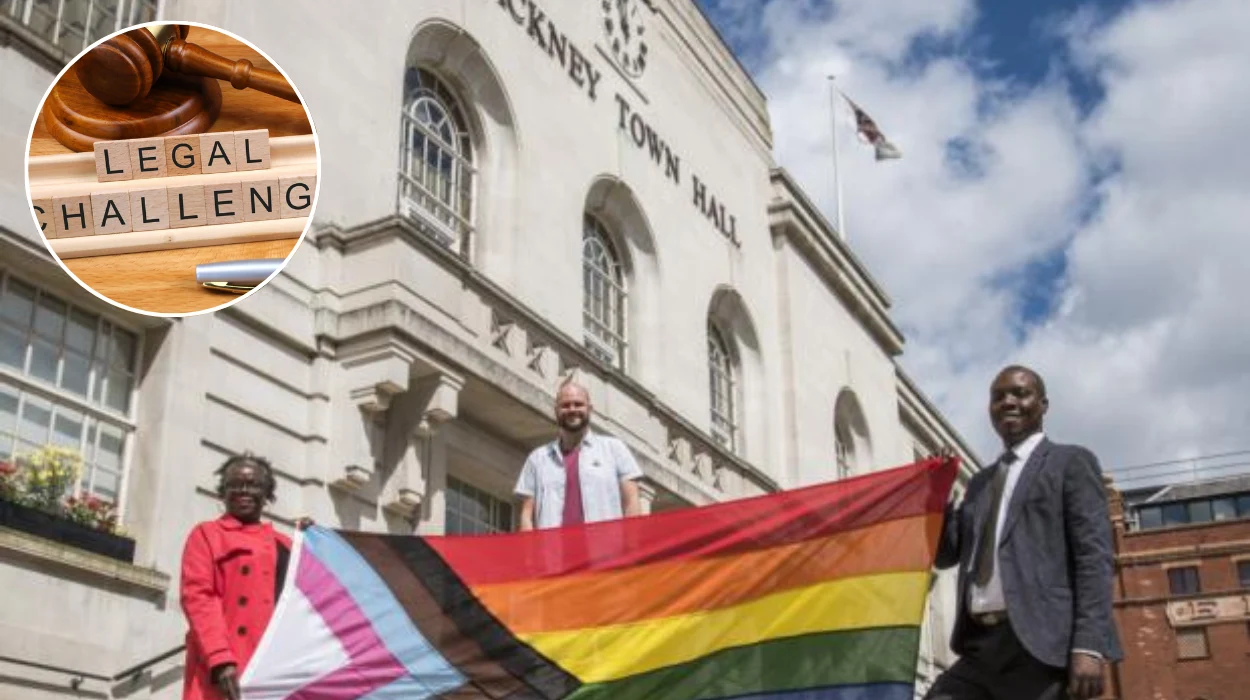Key Points
- Hackney Council authority has raised the Progress Pride flag outside its town hall.
- Legal experts warn the council could be “vulnerable to litigation” due to this action.
- The move has sparked debate about the role of local authorities in political or social advocacy.
- No official statement from Hackney Council leadership has been released at the time of reporting.
- Community responses are mixed, with both support and criticism voiced.
- The issue raises questions about public sector neutrality and the legal framework governing council actions.
- The story is developing, with further legal and political ramifications anticipated.
Hackney’s local authority may be exposed to legal challenges after it raised the Progress Pride flag outside its town hall, prompting debate over the boundaries of council advocacy and public sector neutrality.
- Key Points
- Why Has Hackney Council Raised the Progress Pride Flag?
- What Legal Concerns Have Been Raised?
- How Has Hackney Council Responded?
- What Are the Reactions From the Community and Stakeholders?
- What Are the Broader Legal and Political Implications?
- What Happens Next?
- How Does This Relate to Wider Trends in Local Government?
Why Has Hackney Council Raised the Progress Pride Flag?
As reported by multiple local and national outlets, Hackney Council recently decided to fly the Progress Pride flag—a symbol representing LGBTQ+ inclusivity—outside its main town hall building. The move was intended to mark Pride Month and demonstrate the borough’s commitment to diversity and equality.
What Legal Concerns Have Been Raised?
According to legal analysts cited by several media sources, the council’s decision could leave it “vulnerable to litigation.” The core concern is whether flying the Progress Pride flag, which is widely recognised as a symbol of political and social advocacy, might contravene regulations that require public bodies to remain neutral in political matters.
Legal experts have pointed to precedents where public sector organisations were challenged for similar displays, suggesting Hackney Council could face judicial review or complaints under local government law. The risk, they argue, is that the council’s action could be interpreted as an endorsement of a particular political stance, rather than a neutral celebration of diversity.
How Has Hackney Council Responded?
At the time of writing, Hackney Council leadership has not issued an official public statement addressing the legal concerns. Previous statements from the council, as reported by local journalists, have emphasised the authority’s commitment to fostering an inclusive environment for all residents.
A spokesperson for Hackney Council previously told the press, “We are proud to support our LGBTQ+ community and to celebrate Pride Month by flying the Progress Pride flag. Hackney is a place where everyone should feel welcome and valued.”
What Are the Reactions From the Community and Stakeholders?
The decision has generated a spectrum of responses within Hackney and beyond. Supporters, including local LGBTQ+ advocacy groups, have praised the council for taking a visible stand in support of equality. One local activist, quoted by community media, said, “This is a powerful statement of solidarity with marginalised residents. It shows Hackney is committed to being a safe and welcoming place for everyone.”
However, critics argue the move is inappropriate for a public authority. As reported by regional news outlets, some residents and legal commentators believe the council should not be seen to promote any particular political or social cause, regardless of its popularity or perceived virtue. “The council’s role is to serve all residents impartially,” said one legal expert, “and actions like this risk undermining public trust in its neutrality.”
What Are the Broader Legal and Political Implications?
The incident has reignited a national debate about the role of local government in social advocacy. Legal commentators note that while councils are encouraged to promote equality and diversity, they must also adhere to statutory duties requiring impartiality in political matters.
As reported by legal affairs journalists, the outcome of any potential litigation could set a precedent for other local authorities across the UK. If a court were to find Hackney Council’s actions unlawful, it might force councils nationwide to reconsider similar displays in the future.
What Happens Next?
The situation remains fluid. Legal experts anticipate that if a formal challenge is mounted, it could take months to resolve through the courts. In the meantime, Hackney Council is likely to face continued scrutiny from both supporters and critics.
Community leaders have called for open dialogue to address concerns and ensure that efforts to promote inclusivity do not inadvertently breach legal or ethical standards.
How Does This Relate to Wider Trends in Local Government?
Hackney’s decision comes amid a broader trend of local authorities seeking to demonstrate support for minority communities through symbolic gestures. However, as this case illustrates, such actions can carry legal and political risks, particularly when questions of neutrality and statutory duty are involved.
Legal analysts suggest that councils should carefully review their policies and seek legal advice before engaging in similar displays to avoid potential litigation.


